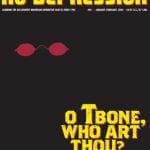Mark Erelli – Country & Western Massachusetts
Mark Erelli is hardly the laid-back sort. In conversation, one of the first things you notice about him is a boyish excitement about projects at hand and projects to come. If you really want to ratchet his enthusiasm up a notch, however, just ask about the roots music scene in New England.
“I’m convinced there is no better Americana music being made anywhere else in the country,” says Erelli, who lives in Northampton, Massachusetts, 100 miles west of Boston. “Nashville or Austin might have more people doing it, but the quality of Americana and country music here is ridiculous, and it’s all happening in these little bars that don’t even charge covers.
“I’ve always felt there was a little bit of a bias when it comes to trying to get people to take country music in New England seriously, because it doesn’t have the history that the south has with it, obviously,” he continues. “That was part of the reason I put all those cover songs on The Memorial Hall Recordings [his 2002 release] — I wanted to show people what’s here. Dennis Brennan alone should be a legend. Here, he is a legend. It’s a great scene to be involved in, and to learn from.”
What’s got Erelli in an Americana frame of mind is the impending release of Hillbilly Pilgrim, his fourth album, due out January 20 on Massachusetts independent label Signature Sounds. Whereas Erelli’s previous discs have sported an occasional western swing tune, Hillbilly Pilgrim is the first to be shot through nearly from start to finish with music that could’ve sat comfortably inside a country jukebox from the 1930s or ’40s.
Erelli’s fondness for such traditional fare is genuine; he’s not pursuing the form for the sake of campy parody or revivalist novelty. Indeed, even the most light-hearted moments on the album belie a reverence for the music’s history, and for its most seminal practitioners.
“Musically, I wanted to make something that was a little more purebred,” Erelli explains. “I listen to this album and think, ‘This is a country record.’ It might be country music like it was 60 years ago, but it’s country. I don’t know that I have to use too many hyphenated terms to describe it — and that, to me, is a big relief.”
Hillbilly Pilgrim will likely come as a surprise to fans who figured that Erelli fit relatively snugly into the traditional folk troubadour mold. Truth is, however, the 28-year-old singer-songwriter has always been a restless sort artistically, and from the start has understood that solemn introspection and political commentary in song were most effective when tempered with lighter fare.
On 2001’s Compass & Companion, his second album for Signature, Erelli tossed in a dash of country and western with an anomalous tune titled “Why Should I Cry Over You”. On The Memorial Hall Recordings, his tribute to New England’s roots music heritage, Erelli included an original western swing composition titled “What’s Changed”.
“I had written those songs without really doing any research beyond the typical kind of western swing you hear in everyday listening, which is to say, not much,” he admits. “But they were always audience favorites, and I loved playing them, and the band loved playing them. They were also really fun to write, because they were a bit simpler. You don’t have to be very philosophical, or very deep, when you write these songs.
“So I started writing them sort of inbetween the heavier material, just to kind of clear the palette, and the next thing I knew I had a whole group of them that kind of went together, that were really fun, and that swung quite a bit. I had always threatened to do this, thinking maybe I could get a whole record of these together. Finally I had enough tunes to pick and choose the best ones.”
There is little in Erelli’s background to suggest he was bound for a career in music. The son of schoolteachers, he grew up in Reading, Massachusetts, in a household where education was a priority, and where the family listening tastes ran toward the likes of Barbra Streisand and Barry Manilow.
By the time he entered high school, however, Erelli had become an avid music collector, which in turn fomented a desire to take up the guitar. His initial stabs at the instrument proved frustrating, but he soon discovered he could sing, and before graduating he managed to front a couple of bands.
A real turning point in his approach to playing guitar occurred when he heard Chris Smither perform on a Boston radio show. “I was just floored,” he says. “I was really into blues music in high school, and I was starting to get into folk, and here was someone who was the link between the two. I tried to find his records, and couldn’t. Finally I ended up finding Another Way To Find You in a used CD store, in the Joni Mitchell section, totally misfiled. To this day that’s probably one of my three most cherished albums.
“Hearing him, and then going to see him play in town, really made me want to play guitar. So I ended up borrowing a guitar from a friend of mine, and went off to college and just started sitting down with it, trying to piece together stuff from the four or five chords that I knew.”




